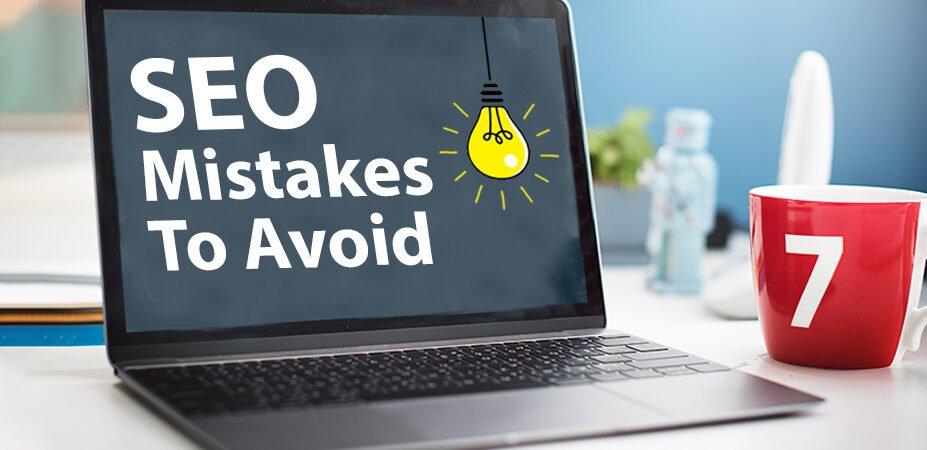The biggest SEO website content mistakes business owners make are not always about forgetting meta descriptions, using keywords, or focusing on relevant content. Subtle mistakes, such as ignoring user intent, writing for keywords rather than people, or producing outdated content, can negatively impact your organic search rankings and hinder business growth.
One of the significant mistakes that many small business owners make is failing to give SEO the attention it requires, or worse, copying and pasting content from outdated blog posts.
Search engines have evolved. User expectations also keep changing. Therefore, if your search engine optimization is not keeping up, then it’s underperforming and actively hurting your visibility and business growth.
This guide breaks down the most common SEO mistakes, explains why they occur, and provides guidance on how to correct them.
Let’s explore!
Why is SEO Important for Your Business?
SEO is how your potential and target customers find your business, without relying on paid ads. It is not just about being found on Google. It’s about being found in the right searches, with the right message, and at the right time.

So why is it essential?
- Helps you rank in Google Search.
- Brings in organic search traffic.
- Builds trust and authority.
- Enhances user experience.
Most small businesses do not fail at search engine optimization because they do not try. They fail because they focus on the wrong content. SEO is not about blogging once a month or installing plugins to help you. It is a combination of strategy, structure, and consistency. If you miss one, everything gets weaker.
Here are some of the common SEO website content mistakes to avoid:
Mistake #1: Ignoring User Intent in SEO Content Strategy
One of the biggest SEO mistakes is creating content that fails to align with user intent. It’s not enough to stuff in keywords or produce generic blog posts. Your content should directly answer user questions that your target customers are searching for.
When business owners fail to align content with what users want, they see higher bounce rates and lower conversion rates. Understanding user behavior, user questions, and user satisfaction helps shape high-performing content that resonates with your audience and enhances your SEO ranking.
Mistake #2: Writing for Keywords, Not People
Keyword stuffing is still alarmingly common. Yes, you want to optimize for relevant keywords, but search engines have evolved. Google prioritizes content quality and penalizes short, keyword-stuffed posts.
Instead, aim for valuable content that reflects subject matter depth and speaks to your target customers. Focus on a natural approach to content, use keywords thoughtfully without sacrificing readability or engagement.

Mistake #3: Lack of keyword research
Another common SEO mistake business owners make when creating website content is skipping Keyword research altogether. They may assume they know what their audience is searching for and skip generating high-quality content.
Keyword research shows you precisely what potential online users and customers are typing into Google. It helps you understand demand, prioritize content, and align your pages with the real needs of users. Without it, your content might be well-written, but it will be irrelevant.
Google has confirmed that content relevance is one of the most important ranking factors. If your pages don’t reflect the keywords people use, your business won’t appear in search results.
Without keyword optimization, your website becomes invisible to your target audience, resulting in reduced user engagement, decreased traffic, fewer leads, and lost revenue.
Mistake #4: Neglecting Mobile Optimization

Did you know a considerable portion of online users now browse via smartphones? Over 60% of global web traffic comes from mobile devices. Therefore, your website’s mobile experience will directly affect visibility and conversions. If your site isn’t optimized for mobile users, you’re losing both organic traffic and credibility.
A poor mobile-friendly website experience results in lower SEO ranking, reduced organic traffic, and elevated bounce rates. Research indicates that approximately 53% of mobile visitors abandon sites that take more than three seconds to load, a devastating loss for any small business.
Mobile optimization isn’t just about how your site looks. it’s about load speed, responsiveness, and user experience. Avoid slow load times, optimize images, and ensure your well-designed website performs flawlessly across all devices.
Mistake #5: Failing to Claim or Optimize a Google Business Profile

Your Google Business Profile plays a critical role in local SEO. Yet, many online business owners ignore it entirely or fail to keep it updated.
A complete, optimized profile boosts your search visibility, provides accurate business info, and allows you to manage business hours, business messages, and customer reviews. This helps search engines verify your credibility and builds trust signals with potential customers.
Mistake #6: Overlooking On-Page Structure and Schema Markup
A chaotic semantic structure can confuse both users and search engines. Elements like headers, single URL structure, and schema markup are essential for clarity.
Proper markup improves ranking in search results by enhancing search snippets. For business websites, implementing schema can also boost conversion rates by showcasing reviews, FAQs, and service details directly in search results.
Mistake #7: Producing Irregular or Outdated SEO Content
SEO is not a one-time effort. Regular updates are key to staying competitive and relevant. Google rewards freshness through content visibility. So if your website SEO content hasn’t been touched in months, you’re sending mixed signals to algorithms.
Develop a content calendar with regular performance monitoring, address content gaps, and use a content feedback loop to refine your strategy over time.
Mistake #8: Overlooking Website Speed

Website loading speed often gets overlooked by small business owners, yet it is one of the most common pitfalls affecting SEO performance, search rankings, and user satisfaction.
Every second counts when visitors land on your page, and research shows that as page load time goes from 1 second to 3 seconds, the probability of bounce increases 32%.
In 2010, Google officially announced that site speed would be a factor in search rankings. This factor has grown increasingly crucial in determining optimal performance and search visibility since then.
Google’s PageSpeed Insights can measure your performance while providing specific recommendations for improvement. For businesses with multiple pages, comprehensive tools that check performance across your entire site offer greater efficiency.
So, how do you improve your site’s speed?
- Upgrade from shared hosting to faster options like VPS
- Compress and optimize images
- Implement browser caching
- Minimize CSS and JavaScript files
- Use a Content Delivery Network (CDN)
Mistake #9: Using Inconsistent Branding and Messaging
Your messaging across services, voice, and visuals must reflect your mission statement and overall business plan. Inconsistent branding confuses users and can harm user engagement and conversion rates.
Avoid Mismatched business names across platforms, and reinforce a clear service promise. This builds recognition and strengthens the signal of trust across your marketing channels.
Mistake #10: Ignoring User Experience

User experience (UX) directly affects how search engines perceive your site’s quality, yet many small business owners overlook its significance in customer satisfaction and performance rankings.
UX goes beyond providing users with what they say they want and focuses on understanding them, including what they need, what they value, their abilities, and limitations.
To enhance your site’s user experience (UX), prioritize direct navigation, engaging content, and an appealing design. Test your mobile pop-ups to ensure they don’t cover important content. Simplify website navigation so visitors can easily find what they’re seeking.
Mistake #11: Forgetting About Backlinks and External Links
Links matter, a lot. Many businesses fail to include relevant external links to authority sources or earn natural backlinks to their content.
Lack of backlinks affects SEO performance and authority with algorithms. At the same time, avoid low-quality backlinks or broken links, as they generate spam signals and undermine your site’s credibility.
For small businesses, effective link-building strategies include creating exceptional, shareable content, guest blogging on reputable industry sites, fixing broken links, and leveraging supplier relationships.
Mistake #12: Not Tracking SEO Performance
If you’re not measuring, you’re guessing. Many business owners don’t use tools like Google Search Console or a traffic analytics tool to monitor results.
Track SEO performance using KPIs like organic search traffic, performance metrics, and time on strategies. Reviewing traffic trends, spotting traffic drops, and analyzing rankings over time will help you fine-tune your approach.
For newer websites, daily checks help catch indexing or crawling issues early. A weekly review of traffic trends, rankings, and engagement metrics is enough for established sites to make smart, data-driven adjustments.
Skipping performance tracking is one of the biggest SEO mistakes to avoid, because without data, you’re working in the dark.
Mistake #13: Treating Your Site Like a Digital Business Card
The most common mistake is building a business-card site that only states who you are, without offering actual value.
Your site must guide users through a sales funnel, offer expert-authored content, and address user expectations at every stage. Engage with online users, showcase business opportunities, and build a seamless path from awareness to action.
Conclusion: Elevate Your Website SEO Content Strategy

Your website is more than a digital brochure. It’s your most powerful marketing tool. Avoiding these 13 mistakes will drastically improve your website SEO content, boost your search rankings, and attract more potential customers organically.
At the end of the day, the rule of thumb is simple: Create valuable content, optimize your user experience, and monitor your SEO performance consistently.
Ready to Elevate Your Website Content?
If you’re a business owner looking to boost your search rankings, attract the right audience, and turn your website into a growth machine, I can help.
As an experienced SEO writer, I craft content that’s not just keyword-optimized but user-focused, strategic, and conversion-ready.
Let’s build content that works for your business.
Contact me today to get started with professional SEO content writing that delivers results.

